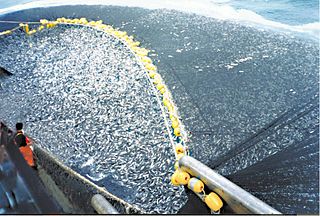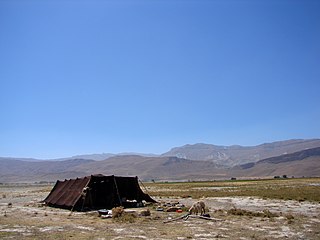
In the United States today, the organized environmental movement is represented by a wide range of organizations sometimes called non-governmental organizations or NGOs. These organizations exist on local, national, and international scales. Environmental NGOs vary widely in political views and in the amount they seek to influence the environmental policy of the United States and other governments. The environmental movement today consists of both large national groups and also many smaller local groups with local concerns. Some resemble the old U.S. conservation movement - whose modern expression is The Nature Conservancy, Audubon Society and National Geographic Society - American organizations with a worldwide influence.

Natural resources are resources that exist without any actions of humankind. This includes all valued characteristics such as commercial and industrial use, aesthetic value, scientific interest and cultural value. On Earth, it includes sunlight, atmosphere, water, land along with all vegetation, and animal life.

The environmental movement, also including conservation and green politics, is a diverse philosophical, social, and political movement for addressing environmental issues. Environmentalists advocate the sustainable management of resources and stewardship of the environment through changes in public policy and individual behavior. In its recognition of humanity as a participant in ecosystems, the movement is centered on ecology, health, and human rights.

Vandana Shiva is an Indian scholar, environmental activist, food sovereignty advocate, and anti-globalization author. Based in Delhi, Shiva has written more than 20 books.
The following outline is provided as an overview of and topical guide to sustainable agriculture:

A renewable resource is a natural resource which will replenish to replace the portion depleted by usage and consumption, either through natural reproduction or other recurring processes in a finite amount of time in a human time scale. Renewable resources are a part of Earth's natural environment and the largest components of its ecosphere. A positive life cycle assessment is a key indicator of a resource's sustainability.

Sustainable agriculture is farming in sustainable ways, which means meeting society's present food and textile needs, without compromising the ability for current or future generations to meet their needs. It can be based on an understanding of ecosystem services. There are many methods to increase the sustainability of agriculture. When developing agriculture within sustainable food systems, it is important to develop flexible business process and farming practices.
Agroecology (a-grō-ē-ˈkä-lə-jē) is an applied science that studies ecological processes applied to agricultural production systems. Bringing ecological principles to bear can suggest new management approaches in agroecosystems. The term is often used imprecisely, as the term can be used as a science, a movement, or an agricultural practice. Agroecologists study a variety of agroecosystems. The field of agroecology is not associated with any one particular method of farming, whether it be organic, integrated, or conventional, intensive or extensive, although some use the name specifically for alternative agriculture.

Habitat conservation is a management practice that seeks to conserve, protect and restore habitats and prevent species extinction, fragmentation or reduction in range. It is a priority of many groups that cannot be easily characterized in terms of any one ideology.

Pastoralism is a form of animal husbandry where domesticated animals known as livestock are released onto large vegetated outdoor lands (pastures) for grazing, historically by nomadic people who moved around with their herds. The species involved include cattle, camels, goats, yaks, llamas, reindeer, horse and sheep.

Environmental resource management is the management of the interaction and impact of human societies on the environment. It is not, as the phrase might suggest, the management of the environment itself. Environmental resources management aims to ensure that ecosystem services are protected and maintained for future human generations, and also maintain ecosystem integrity through considering ethical, economic, and scientific (ecological) variables. Environmental resource management tries to identify factors affected by conflicts that rise between meeting needs and protecting resources. It is thus linked to environmental protection, sustainability and integrated landscape management.

Soil conservation is the prevention of loss of the top most layer of the soil from erosion or prevention of reduced fertility caused by over usage, acidification, salinization or other chemical soil contamination.

Environmentalism or environmental rights is a broad philosophy, ideology, and social movement regarding concerns for environmental protection and improvement of the health of the environment, particularly as the measure for this health seeks to incorporate the impact of changes to the environment on humans, animals, plants and non-living matter. While environmentalism focuses more on the environmental and nature-related aspects of green ideology and politics, ecology combines the ideology of social ecology and environmentalism.

Forest protection is a branch of forestry which is concerned with the preservation or improvement of a forest and prevention and control of damage to forest by natural or man made causes. (example - fire, animals, insect, fungi, injurious plants and adverse climatic conditions.)

The Endangered Wildlife Trust is a South African environmental organisation for the conservation of threatened species and ecosystems in southern Africa.

In ecology, resilience is the capacity of an ecosystem to respond to a perturbation or disturbance by resisting damage and recovering quickly. Such perturbations and disturbances can include stochastic events such as fires, flooding, windstorms, insect population explosions, and human activities such as deforestation, fracking of the ground for oil extraction, pesticide sprayed in soil, and the introduction of exotic plant or animal species. Disturbances of sufficient magnitude or duration can profoundly affect an ecosystem and may force an ecosystem to reach a threshold beyond which a different regime of processes and structures predominates. When such thresholds are associated with a critical or bifurcation point, these regime shifts may also be referred to as critical transitions. Human activities that adversely affect ecological resilience such as reduction of biodiversity, exploitation of natural resources, pollution, land use, and anthropogenic climate change are increasingly causing regime shifts in ecosystems, often to less desirable and degraded conditions. Interdisciplinary discourse on resilience now includes consideration of the interactions of humans and ecosystems via socio-ecological systems, and the need for shift from the maximum sustainable yield paradigm to environmental resource management which aims to build ecological resilience through "resilience analysis, adaptive resource management, and adaptive governance".
This page is an index of sustainability articles.

Conservation-reliant species are animal or plant species that require continuing species-specific wildlife management intervention such as predator control, habitat management and parasite control to survive, even when a self-sustainable recovery in population is achieved.

Agricultural engineering is the engineering of agricultural production and processing. Agricultural engineering combines the disciplines of mechanical, civil, electrical, Food science and chemical engineering principles with a knowledge of agricultural principles according to technological principles. A key goal of this discipline is to improve the efficacy and sustainability of agricultural practices.
The history of sustainability traces human-dominated ecological systems from the earliest civilizations to the present. This history is characterized by the increased regional success of a particular society, followed by crises that were either resolved, producing sustainability, or not, leading to decline.














